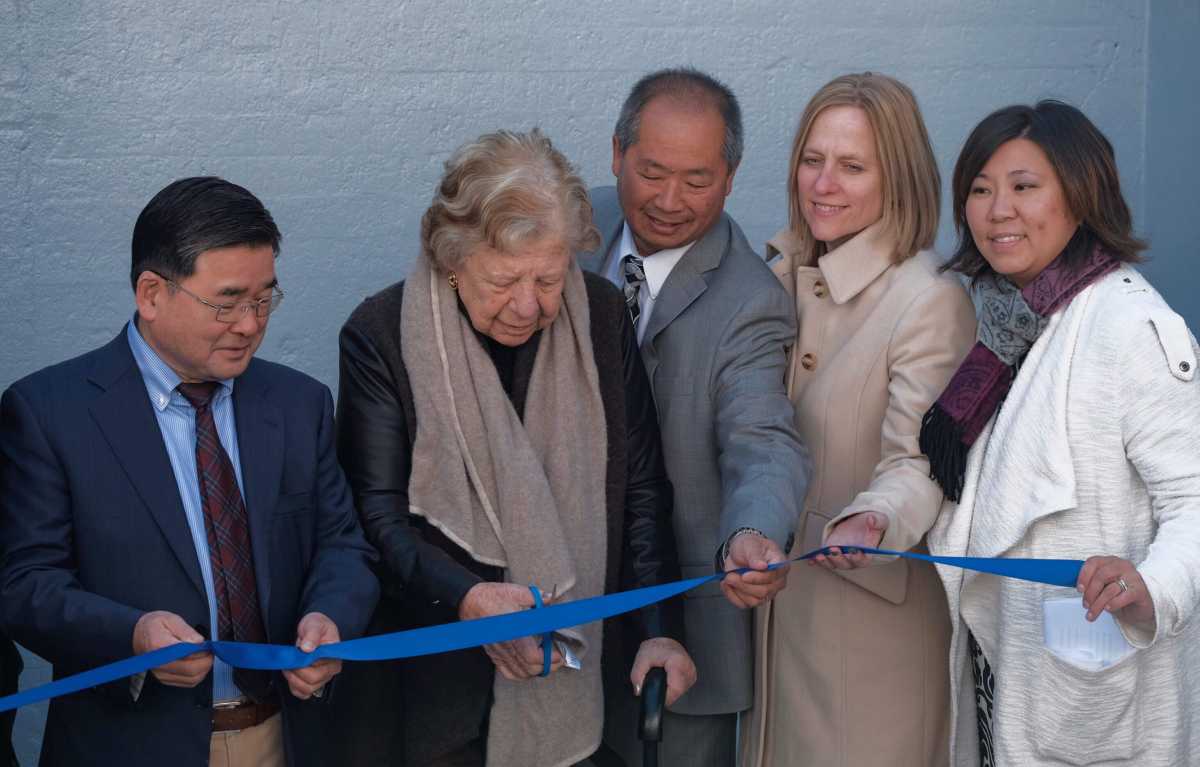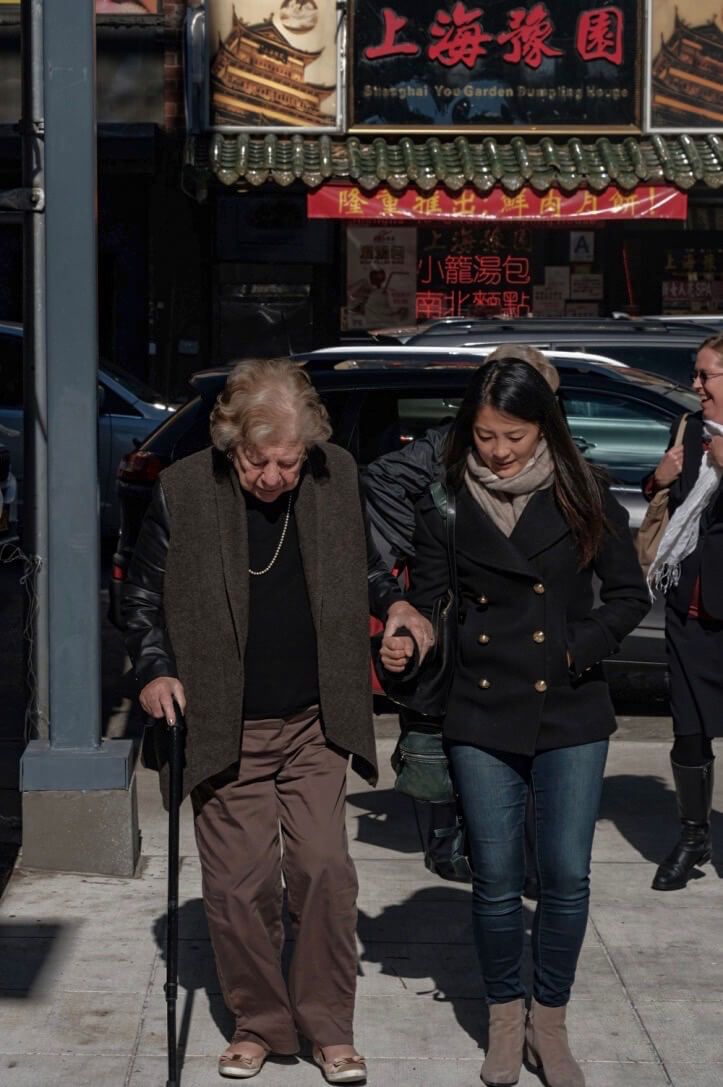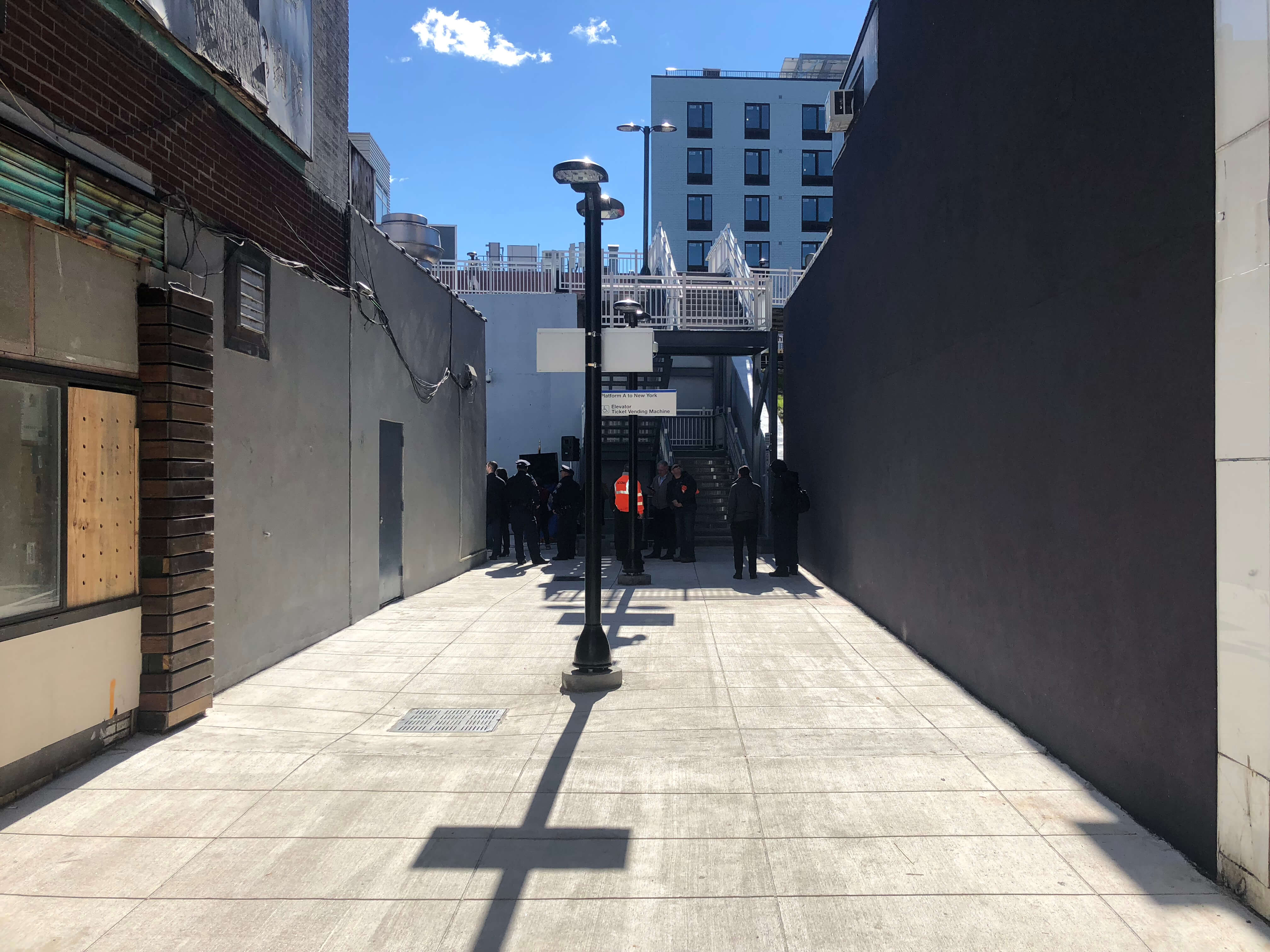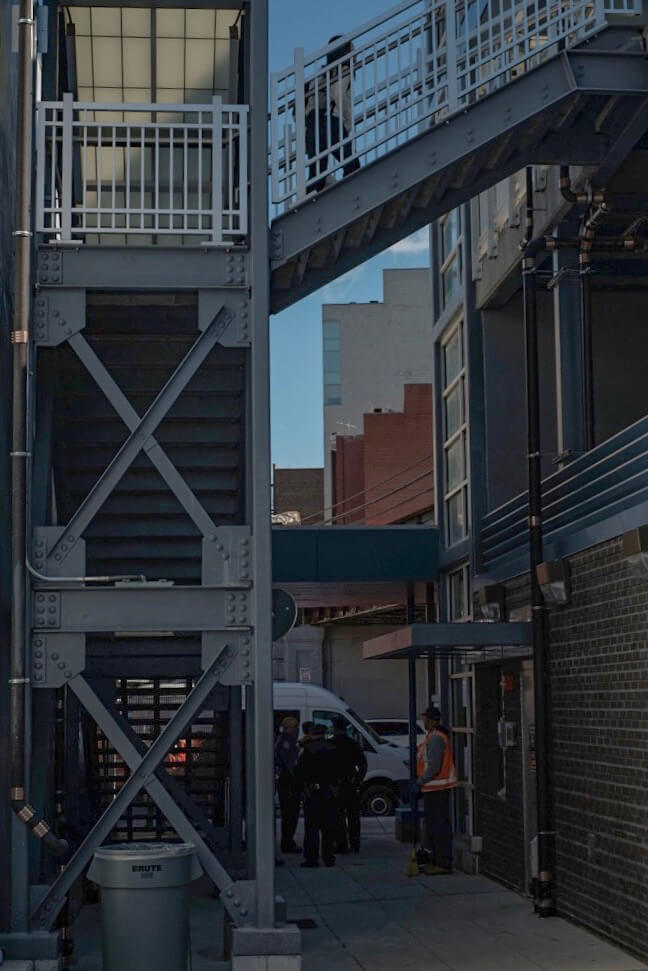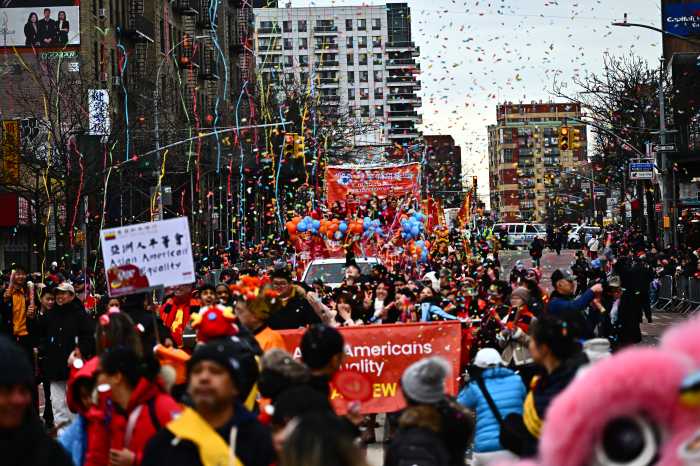What was once a dark, dank alleyway with plywood covering gaps in the pavement, the entrance to the eastbound tracks at the Long Island Rail Road’s Flushing-Main Street station now leaves a clean and modern impression on commuters, residents and people just passing through.
More important than anything, however, is the new hydraulic elevators that makes the station compliant with the Americans with Disabilities Act for the first time since the law was enacted in 1990, and since the station was first established in 1854.
Improvements to Flushing-Main Street was among 40 other LIRR stations receiving overhauls totaling $5.6 billion in state funds announced by Governor Andrew Cuomo’s in August 2017.
Dee Barrett walks with a cane and has travailed the stairs of the Flushing-Main Street station for years on his bi-monthly trips between Queens and his home in Pennsylvania. Even though it took the MTA decades to make the station ADA compliant, Barrett does not hold it against the the state agency.
“Unlike other places that don’t do anything, I’m still pretty impressed with the MTA. They move how many millions of people a day?” said Barrett, who also takes New Jersey Transit to get to Flushing.
An Oct. 18 press conference with Queens elected officials and LIRR President Phillip Eng illustrated how far back the demand for overhauls go.
Former Borough President Claire Shulman said the reinvigorated train station paired with the new housing development nearly completed adjacent the tracks on the south side will release the dependency of Queens residents on cars.
“What it really does is it improves transportation, it increases housing and it gets rid of the cars,” said Shulman, who served as borough president from 1986 to 2002 and now heads the Flushing Willets Point Corona Local Development Corporation.
One Flushing Housing has 231 affordable units and is another upgrade for the neighborhood having previously only been a parking lot when work began in 2016.
Another critical improvement the renovation brings is easy access from westbound to eastbound tracks.
If a passenger needs to switch platforms, they no longer have to go down to Main Street and around the corner to 40th Road, or vice versa, to get to the opposite side. A new ground-level passageway gives LIRR customers a shortcut.
“It’s been here since 1854 and in 1913 the station was elevated above street level, so it’s been part of this landscape and this environment, a transportation outlet for residents and businesses for more than 160 years,” Eng said. “Out of our 124 stations across Long Island Rail Road, Flushing-Main Street is one of our 50th busiest stations across the system.”
Eng added that about 2,200 straphangers pass through the Flushing-Main Street station on an average day.

